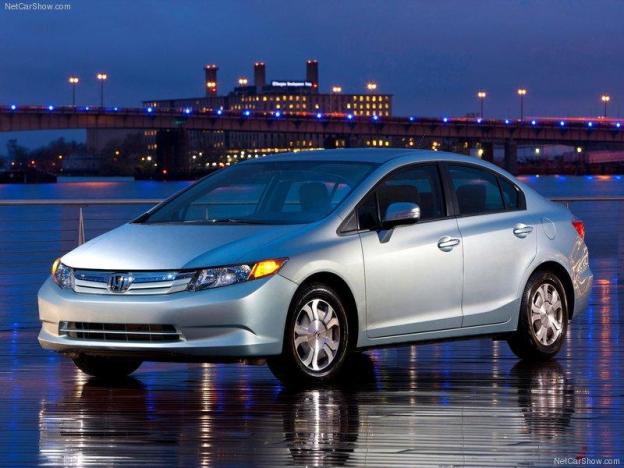 According to an old saying, you are what you wear, but are you what you drive? Plenty of automotive stereotypes try to link people’s personalities with their choice of car. Conventional wisdom says that Buicks are driven exclusively by the elderly, and “sports car” is code for “midlife crisis.” It also says that Republicans drive pickup trucks, while Democrats drive Volvos or Priuses. Strategic Vision decided to put that notion to the test, naming the top five cars for each major party.
According to an old saying, you are what you wear, but are you what you drive? Plenty of automotive stereotypes try to link people’s personalities with their choice of car. Conventional wisdom says that Buicks are driven exclusively by the elderly, and “sports car” is code for “midlife crisis.” It also says that Republicans drive pickup trucks, while Democrats drive Volvos or Priuses. Strategic Vision decided to put that notion to the test, naming the top five cars for each major party.
Strategic Vision surveyed 76,103 new car buyers over two years. Of that sample, 37% identified themselves as Republicans, 31% as Democrats. The rest were members of third parties or were unaffiliated. The research firm asked each person what car they had bought and what attributes they valued most in a vehicle.
For the most part, both parties adhered to the stereotype. The Democrats tended to choose small, fuel-efficient vehicles, while the Republicans went after gas-guzzlers. The top choice for the Democrats was the Honda Civic hybrid, followed by: the Volvo C30, Nissan Leaf, Acura TSX Sport Wagon, and Ford Fiesta sedan. The GOP’s favorite car was the Ford Mustang convertible, which beat the Audi A8, Mercedes-Benz GL-Class, Ford Expedition, and Ford F-150.
Overall, the Democrats preferred cars that were small and multi-functional, while the Republicans preferred large and luxurious vehicles. All of the small car categories went to the Democrats. They would only buy a small SUV, and the only upscale category with a majority of Democrats was “luxury multi-function.”
On the other hand, a majority of Republicans preferred medium and large SUVs, luxury vehicles, and pickup trucks. A significant majority (69% versus 18%) of Republicans preferred convertibles (under $30,000), which explains why Florida was such an important primary for Mitt Romney.
According to this study, some stereotypes do have a basis in reality. It’s not too surprising to see a hybrid and an electric car on the Democrats’ list, since this is the party of green energy. The stereotype of “Volvo-driving liberals” also appears to be true. In contrast, the party of “drill, baby, drill” chose five cars with V8 engines. Republicans are know for their love of NASCAR, so it’s fitting that three of those cars are Fords.
Studies like this can be interesting, but how does the data compare to the real-life choices of some top politicians? Mitt Romney, whose father was the CEO of American Motors, has a Ford Mustang GT convertible and a Cadillac SRX, among others. President Barack Obama said he would buy a Chevy Volt after he left office but, for now, he rides in an armored Cadillac limousine. Vice President Joe Biden has a 1967 Corvette with a 327-cubic inch V8. Someone has to break the stereotype, right?


